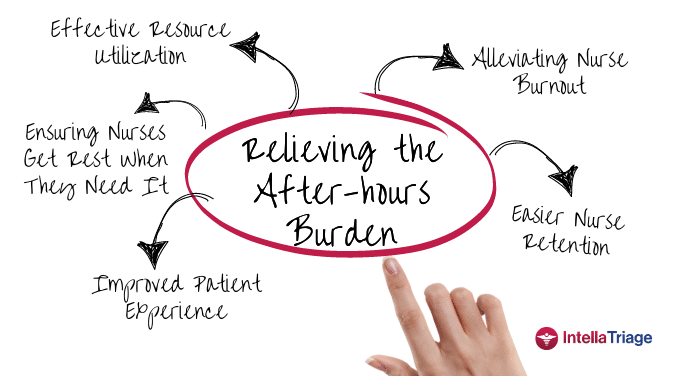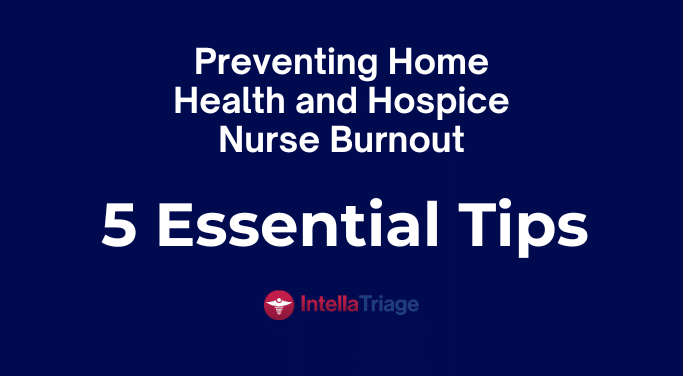Hospice and home health providers have been focused on retention more frequently over the past few years. Providers are “battling” against the great recession, pandemic repercussions, and increased nurse burnout. Most are also familiar with the cyclical nature of nurse staffing shortages: Nurse burnout leads to staff shortages, and staff shortages lead to burnout, both resulting in suboptimal patient experiences. Keeping your nursing staff is a better and more cost-effective strategy than recruiting and training new nurses.
Factors Affecting Nurse Retention
Several factors may influence a nurse’s decision to stay or leave an organization. The work environment and workload can significantly impact nurse job satisfaction and retention. High job demands, insufficient staffing, and a lack of resources can lead to burnout and high job turnover rates. Professional development opportunities are another essential factor in nurse retention. Do your nurses have access to training, education, and career advancement opportunities? Do they feel valued and invested in the organization? Management and administration support, transparent communication, job performance feedback, and work-life balance are critical in maintaining high nurse retention rates.
Reduced Job Satisfaction and Increased Burnout Have Nurses Leaving the Industry
Nurses leaving nursing. Since the pandemic, nurses have been quitting bedside jobs at an alarming rate. The remaining nurses are left to care for more people with fewer resources, further increasing feelings of overwhelm and burnout.
- 29% of nurses across all license types considered leaving in 2021, and the total supply of RNs decreased by more than 100,000 from 2020 to 2021 – the most significant drop ever observed over the past four decades.
Nurses going into remote nursing. Regarding specialty satisfaction rates, non-bedside nurses are the most satisfied of any nursing professionals (48% of remote nurses report being satisfied with their positions). These satisfaction rates are unsurprising as more nurses left the bedside during the COVID-19 pandemic and found less traditional nursing professions.
In the past two years, more than six out of ten hospice nurses have changed jobs in hospice alone. At present, little more than one in four hospice nurses stay on the same job for five years or longer. Meanwhile, 60% of hospice nurses remain at the same job for two years or less.
More than one-third (34%) of nurses say it’s very likely that they will leave their roles by the end of 2022, and 44% cited burnout and a high-stress environment as the reason for their desire to leave, according to a new survey by technology-based nursing hiring platform Incredible Health.
What are the driving factors of burnout in the industry?
Stress (39%) and burnout (35%) were cited by nurses as leading drivers of job dissatisfaction among employed nurses, although insufficient staff to meet demand (53%) surged to become the leading frustration point.
- Charting
- Compassion Fatigue
- Caseload
- After-hours
Strategies to Increase Nurse Retention
For years, most hospice and home health operators have implemented various strategies to retain nurses and reduce turnover rates. For example, offering competitive compensation and benefits packages, career advancement opportunities, recognition and rewards programs, mentorship and coaching programs, and opportunities to improve work-life balance increase nurse retention effectively.
Proper planning, allocation of resources, and evaluation are crucial in successfully implementing retention strategies. It is important to regularly assess new strategies to identify problem areas and develop a plan of action to address them are critical in the process. Ensuring nurses are working at the top of their license and allocating responsibilities to other resources helps to reduce burnout and improve job satisfaction. Monitoring and evaluating the results on a regular cadence is crucial.
Pivot to a Different After-Hours Strategy
Eliminating or reducing the after-hours burden on your nurses improves work-life balance. Additionally, the reasonable work hours and manageable workload often eliminate burnout-associated symptoms of fatigue and reduced enthusiasm.
An illustration of outsourcing:
- “Hand” your after-hours calls to a professional nurse triage team composed of licensed, registered nurses with years of experience in hospice care.
- Professional triage nurses address a large percentage of your organization’s after-hours patient calls, allowing your on-call staff to gain much-needed rest and recovery.
- Now, nurses are less stressed because they are not overwhelmed by phone calls while trying to care for patients and performing all the other duties they face during their workday.
This level of outsourced support can acknowledge and address other symptoms of burnout, such as feeling overworked and under-appreciated.
Reduce Your Team’s Nurse Burnout Concerns
After-hours calls are a key source of nurse burnout rates for hospice and home health providers. IntellaTriage is your team’s first line of defense, triaging up to 80% of incoming hospice calls and close to 100% of your home health calls. Field nurses can focus on their in-person patients without being called away to the phone, which reduces stress, burnout, and subsequent nurse turnover. Outsourced triage equips nurses to answer your patient’s questions at all hours.
At IntellaTriage, we can reduce nurse burnout and staff turnover, improve patient satisfaction, and boost your bottom line. You can save on the cost of staffing your nurses for an internal call center and the time and effort needed to recruit, hire, manage, and operate that service. We also capture all referrals quickly, increasing your topline revenue and your patient’s healthcare outcomes.
Conclusion
Nurse retention is essential to maintaining a stable and quality healthcare workforce. While workload, work environment, and professional development opportunities can significantly impact nurse retention, administrators can effectively support nurse work-life balance, reduce burnout, and improve retention by outsourcing triage along with other retention strategies. Ultimately, by prioritizing nurse satisfaction and, thus, retention, hospice and home health organizations can provide quality patient care and promote staff satisfaction.
Contact us today to learn more about IntellaTriage’s revolutionary approach to nurse triage service.
Contact Us for a Consultation
Ready to optimize your triage process? Reach out to us today for a consultation tailored to your needs. Let’s elevate your patient care together.
More From The Blog
Burnout among healthcare professionals, particularly nurses, is a persistent issue. The ongoing nursing shortage and the upcoming boom in the aging population have intensified this problem, adding urgency to hospice and home health organizations' efforts to find effective solutions. While traditional methods focus on workload and administrative burdens, innovative strategies address the root causes of [...]
In a recent milestone, IntellaTriage and CommonSpirit Health at Home (CSHaH) announced a significant integration between IntellaTriage’s IntellaHub and CSHaH's electronic medical records system, Homecare Homebase. This partnership underscores the importance of interoperability in healthcare, particularly in post-acute settings like hospice and home healthcare. Here are the top five reasons why interoperability is essential in [...]
Preventing nurse burnout can translate to improved nurse retention and improved patient outcomes. In home health and hospice care, nurses often face significant challenges that can lead to burnout. The constant juggling of patient needs, administrative tasks, and emotional stress can take a toll on even the most dedicated caregivers. However, prioritizing nurse wellness and [...]









